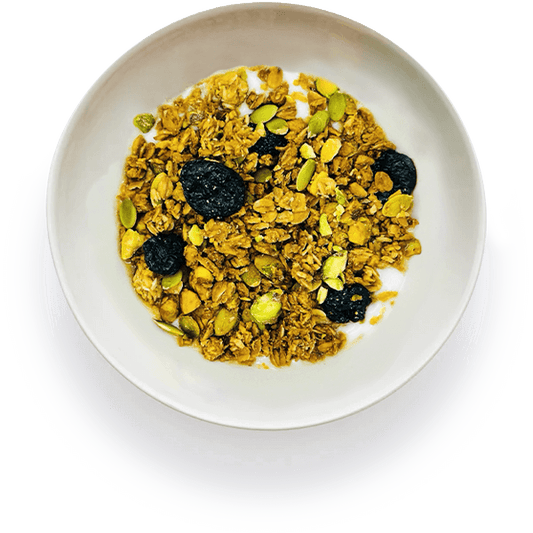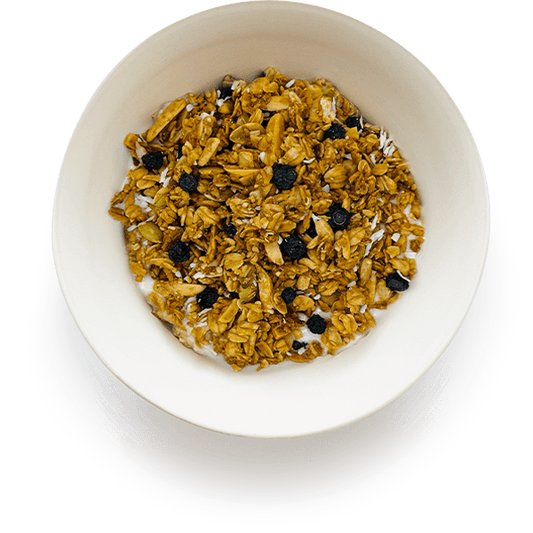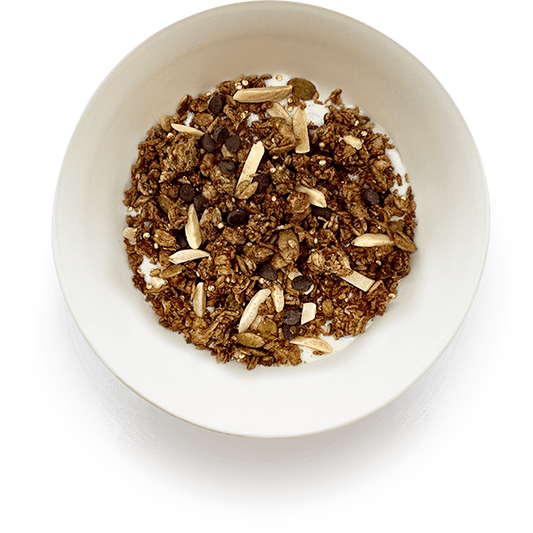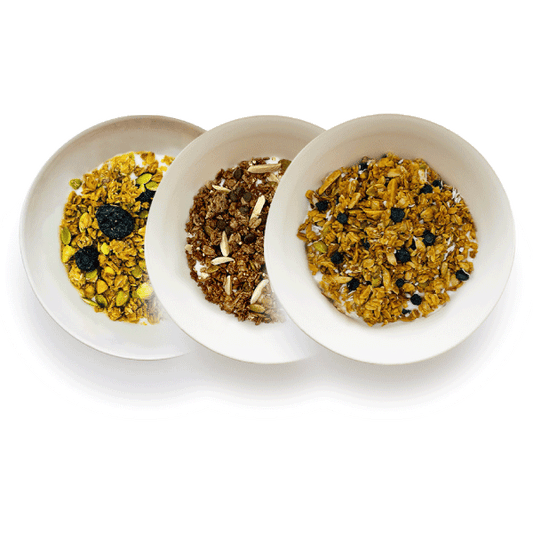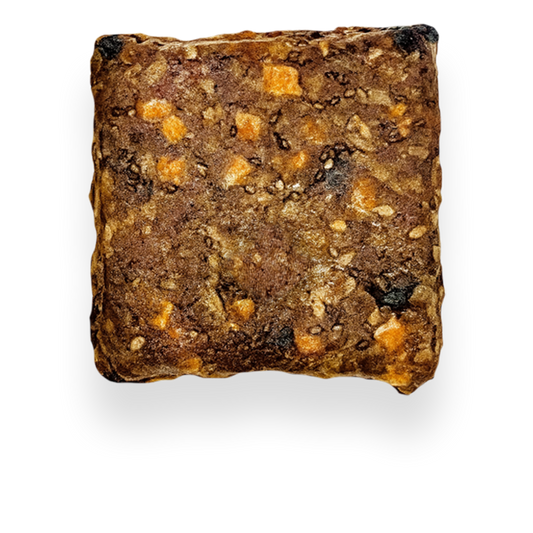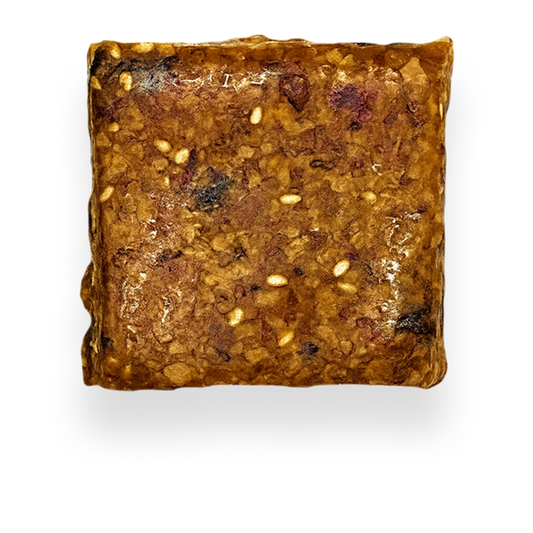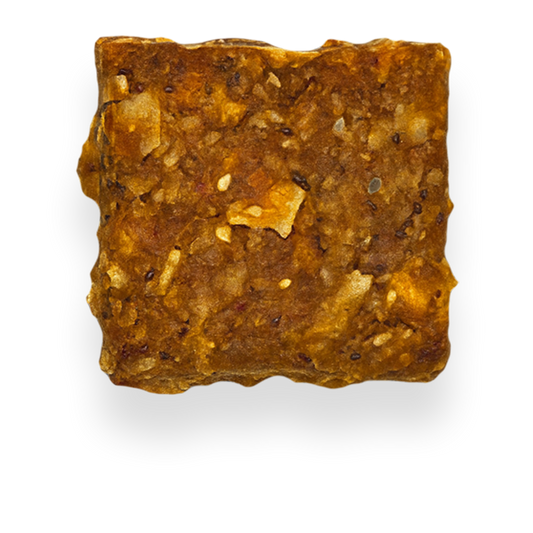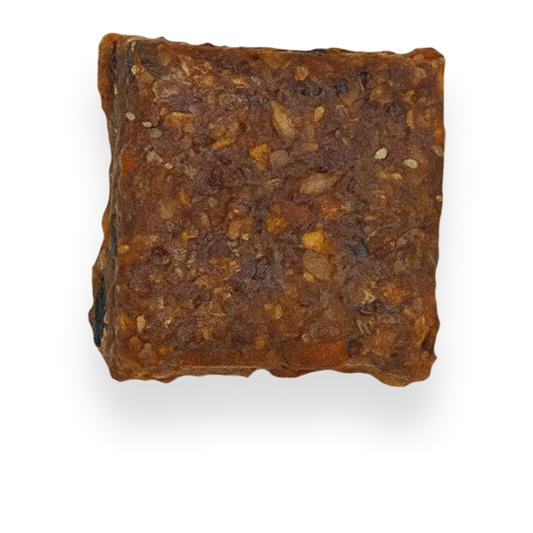Fuel Your Game with Plant-Based Nutrition
By FireRoad
Frequently Asked Questions
1. What are the benefits of a plant-based diet for athletes?
2. How can athletes ensure they have nutrient-dense meals on a plant-based diet?
3. What are some good sources of protein in a plant-based diet?
4. What essential vitamins and minerals should athletes pay attention to on a plant-based diet?
5. What are some practical tips for transitioning to a plant-based diet as an athlete?
As an athlete, the type of fuel you put into your body can significantly affect your performance. While many athletes turn to conventional diets focused on animal products, there's a growing trend of athletes embracing plant-based nutrition. In this blog, we’ll explore what athletes need to know about plant-based diets, ensuring your meals are not just healthy, but also packed with nutrients to help you thrive in your sport.
The Benefits of Plant-Based Nutrition for Athletes
Plant-based diets can offer numerous advantages for athletes, making them not just viable but incredibly powerful. Here are some of the key benefits:
- Improved Recovery: Anti-inflammatory properties found in fruits, vegetables, nuts, and seeds can help to reduce recovery time after training or competition.
- Increased Energy Levels: Nutrient-dense meals provide the necessary carbohydrates and antioxidants that can boost energy levels throughout the day.
- Enhanced Endurance: Athletes often experience improved stamina through a diet rich in plant foods, promoting better oxygen transfer in the body.
- Weight Management: Many plant-based foods are lower in calories but high in fiber, making it easier to maintain a healthy weight.
- Reduced Risk of Chronic Illness: Vegetarian and vegan diets have been linked to a lower risk of heart disease, diabetes, and certain cancers.
Understanding Nutrient-Dense Meals
One of the best aspects of a plant-based diet is the ability to create nutrient-dense meals. This means incorporating a variety of food sources that maximize the nutritional content without excess calories. Here’s how you can ensure your meals are packed with the nutrition you need:
Focus on Whole Foods
Prioritize whole, unprocessed foods like fruits, vegetables, legumes, whole grains, nuts, and seeds. These foods provide a plethora of vitamins and minerals that can help support athletic performance.
Variety is Key
Eating a wide range of foods ensures that you get a broad spectrum of nutrients. Consider incorporating different colors of fruits and vegetables to ensure a balanced intake of vitamins and phytonutrients.
Timing Your Meals
Ensuring you fuel up before workouts, and refuel afterward, is critical. Consuming a combination of carbohydrates and protein in your meals can significantly enhance recovery. Some quick ideas include:
- A smoothie with spinach, banana, flaxseeds, and almond milk.
- Quinoa salad with black beans, cherry tomatoes, avocado, and lime dressing.
- A hearty vegetable stir-fry with brown rice and tofu.
The Role of Protein in Plant-Based Diets
A common concern among athletes considering a plant-based diet is protein intake. The good news is that there are plenty of plant-based protein sources that can meet your needs:
Legumes and Pulses
Beans, lentils, and chickpeas are excellent sources of protein, fiber, and essential amino acids. They are incredibly versatile and can be incorporated into soups, stews, and salads.
Whole Grains
Quinoa, brown rice, barley, and farro not only provide carbohydrates but also contain protein. Quinoa, in particular, is a complete protein, making it an essential grain for athletes.
Nuts and Seeds
Almonds, chia seeds, hemp seeds, and pumpkin seeds are all excellent sources of protein, healthy fats, and omega-3 fatty acids. They can be eaten as snacks or added to smoothies and dishes for an added nutrition boost.
Essential Vitamins and Minerals
While a well-planned plant-based diet provides many essential nutrients, there are a few that athletes should pay particular attention to:
Vitamin B12
Vitamin B12 is essential for energy production and can only be found in animal-based foods. Athletes following a strict plant-based diet may need to consider fortified foods or supplements.
Iron
Iron is crucial for oxygen transport in the body. While plant sources such as lentils, tofu, and fortified cereals offer iron, they contain non-heme iron, which is less easily absorbed. Pairing iron-rich foods with vitamin C-rich foods (like citrus fruits) can enhance absorption.
Omega-3 Fatty Acids
Essential for heart health and inflammation management, omega-3s from fish can be found in plant sources such as chia seeds, flaxseeds, and walnuts. Including these foods regularly can help meet your omega-3 needs.
Practical Tips for Transitioning to a Plant-Based Diet
If you’re considering shifting to a plant-based diet, it helps to start slowly and ease into it. Here are some practical tips:
Start with Meatless Days
Begin by dedicating a few days each week to go meatless. Explore different plant-based options to see which ones you enjoy.
Experiment with New Recipes
Get creative in the kitchen! There are countless recipes for energizing and delicious meals. Cookbooks, blogs, and social media platforms are rich resources with plant-based meal inspirations.
Join a Community
Consider joining a plant-based nutrition community or forum. Sharing experiences and recipes can provide motivation and support during your transition.
Exciting Plant-Based Meal Ideas for Athletes
Creating delicious plant-based meals doesn’t have to be a chore. Here are a few simple meal ideas to get you started:
- Breakfast: Overnight oats made with rolled oats, almond milk, chia seeds, and topped with fresh berries.
- Lunch: A power bowl with kale, quinoa, roasted chickpeas, and tahini dressing.
- Dinner: A veggie-packed stir-fry with tofu, broccoli, bell peppers, and a ginger-soy sauce over brown rice.
- Snacks: Trail mix made with nuts, seeds, and dried fruits for an on-the-go burst of energy.
Overcoming Challenges on a Plant-Based Diet
Switching to a plant-based diet can come with challenges, from cravings for familiar foods to concerns about meal planning. Here are tips to address common hurdles:
Dealing with Cravings
It’s normal to crave familiar foods, especially in the initial stages. Find plant-based alternatives that satisfy those cravings—vegan burgers, dairy-free ice creams, and snack bars can be great substitutes.
Eating Out
When dining out, explore restaurants that specialize in plant-based cuisine. Also, many restaurants now offer vegan or vegetarian options, so don’t hesitate to ask about modifications.
Meal Prep for Success
Planning and preparing meals ahead of time can help you stick to your plant-based goals. Consider batching meals over the weekends so that healthy options are ready during your busy week.
Unlocking Your Potential with Plant Power
The journey toward a plant-based diet offers athletes the chance to not only enhance their performance but also contribute to a healthier planet. By focusing on nutrient-dense meals, an athlete can unlock their true potential and embrace a lifestyle that fosters both physical and mental well-being.
By committing to a well-rounded, plant-based nutrition plan, you're not just fueling your body but setting the stage for longevity in your athletic career. So, jump on the plant-powered train, and watch how your performance spirals to new heights!



